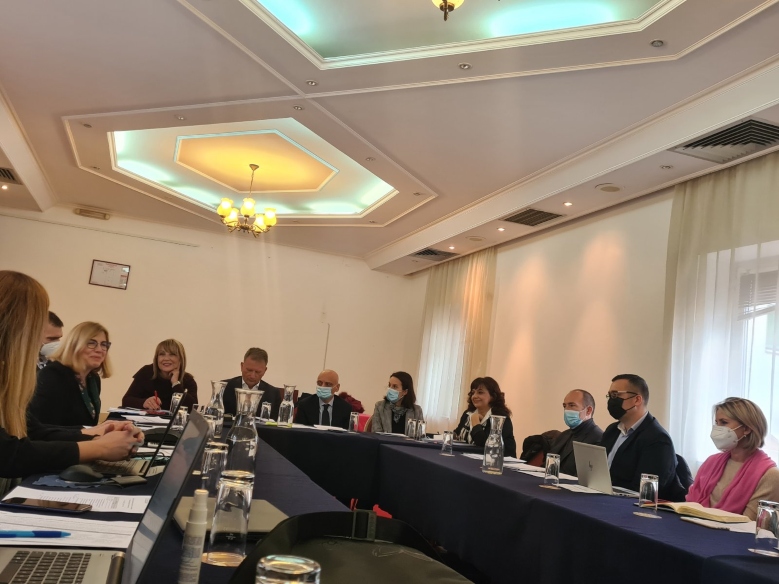The seventh session of the National Coordination Body for Trade Facilitation (NCBTF) was held on November 25, 2021 in Palić, with the support of the Swiss Government’s program for capacity building in the field of trade policy.
The session was chaired by the President of the NCBTF, Stevan Nikčević, and was attended by the Deputy President of the NCBTF, Duško Marinković, the chair of the expert working groups Snežana Karanović, Milanka Davidović, Tatjana Dinkić and Zoran Bakić, as well as other members from the relevant institutions involved in work of this body. The business community was represented as well, on behalf of the Serbian Chamber of Commerce by Aleksandar Radovanović, on behalf of the American Chamber of Commerce in Serbia by Amalija Pavić and Dragana Cvetković and Nikola Kostić on behalf of the Foreign Investors Council.
At the session, new action plans for four expert working groups for the period 2022-2023 were discussed and later adopted, which is the third cycle of action plans, starting in 2018. The new action plans contain activities from the most important areas of foreign trade policy in accordance with the areas covered by the expert working groups, while specific measures, competencies and result indicators can be found at the following link.
Representatives of the private sector played a very active role both in the submission of proposals and during the process of harmonization of the action plans and it can be concluded that almost all initiatives were accepted and became part of the planned activities for the next period. In this way, it was confirmed that NCBTF is an excellent platform for public-private dialogue, through which active communication and exchange of experiences and ideas between the competent state bodies and the business community, in order to facilitate foreign trade.
The next day, a visit was made to the largest border crossing with Hungary, Horgos, where representatives of the Customs Administration, the Border Police Administration, as well as phytosanitary and veterinary border inspections presented their work and procedures. Together with the representatives of the business community, the members of the NCBTF were acquainted in detail with the border procedures that are taking place in Horgos, both when leaving the country and when entering Serbia. The problems faced by exporters and importers were noticed on the spot, and they refer to the long waiting times for trucks at the border crossing. The border services themselves are facing this problem, both due to stricter procedures on the Hungarian side, but also due to the limited infrastructure and technical equipment of the border crossing itself. In the coming period, imports are expected to be facilitated, primarily due to the introduction of a new IT system in phytosanitary border control, as well as the expansion of infrastructure that should be implemented in 2022/23.

